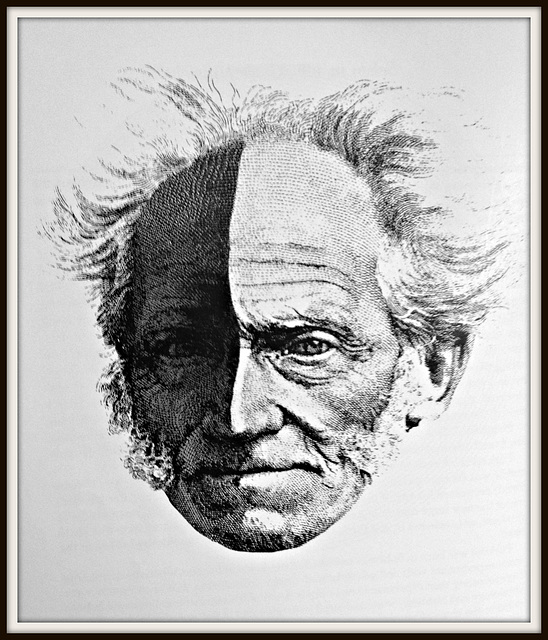Jung
Charles Robert Darwin
Francis Galton (1822 - 1911)
Leo Semionovich Vygotsky
Roger Walcott Sperry
Ivo Kohler
Cala Lilly
Truth
Seattle Eye
One who overrides the territories of others
Salmon Pink
Spring in the swamp
Tilips
Totum
Totem
Bruce Lee's resting place
Bruce Lee's resting place
Nice place for a drink or two ~ no gentleman will…
Greedy cow...
Street Artist
Japanese Garden
Flower Art
Yard through the mesh
Wandering North Magnetic Pole
... At the end of the road...
We deliver
Lawn
Siesta on Pier # 39
Calla Lilly ~ White
Calla Lilly
INDIA JONES'
If we don't....
Morning workout
The Bridge
Keeping the economy vibrant
How did we spent time before Smart phones...?!
They don't look at each other!
...All the lovely people....
Reaching San Francisco
Yes, .... this is it...!
Sancho Panza kept on drinking......!
$6 a bunch
Time to inhale CO2
Keywords
Authorizations, license
-
Visible by: Everyone -
All rights reserved
- Photo replaced on 23 Jun 2018
-
16 visits
Arthur Schopenhauer


Portrait after frontispiece engraving in: Volkelt, J 1900. Arthur Schopenhauer. Seine Personlichkeit, seine Lehre, sein Glaube. Stuttgart: Frommanns.
Schopenhauer's writing is replete with oppositional pairs like life and death, pleasure and pain, love and hate, and his portrait has been transfigured to display this conflict between positive and negative aspects of human endeavor. - Page 39
Schopenhauer's writing is replete with oppositional pairs like life and death, pleasure and pain, love and hate, and his portrait has been transfigured to display this conflict between positive and negative aspects of human endeavor. - Page 39
- Keyboard shortcuts:
Jump to top
RSS feed- Latest comments - Subscribe to the comment feeds of this photo
- ipernity © 2007-2024
- Help & Contact
|
Club news
|
About ipernity
|
History |
ipernity Club & Prices |
Guide of good conduct
Donate | Group guidelines | Privacy policy | Terms of use | Statutes | In memoria -
Facebook
Twitter

Schopenhauer was influenced by both Goethe and Kant, accepting some of their concepts and rejecting others; he was also inspired by Eastern philosophy. He followed Goethe in developing a theory of color vision. With Kant he accepted that reality (the-thing-in-itself) in unknowable, but it consisted of an all-pervading will, of which individual wills are constituent parts. The motive force for the individual will is struggle to survive. Rather than being under the control of the intellect, rational thought is subservient to the will, which is driven by irrational forces. Life is considered to be a succession of blind impulses, like hunger and sexual desire, that are temporarily satisfied, only to return. Pleasure, the satisfaction of an impulse, is transitory: "No attained object of desire can give lasting satisfaction, but merely a fleeting gratification." Understanding the power of the will only amplifies the suffering it imposes. The dire state of affairs can best be ameliorated by immersion in some activity that is not driven by the will, like art. The power of sexual desire can be reduced, he argued, byu leading an ascetic life. ~ Page 39
Sign-in to write a comment.